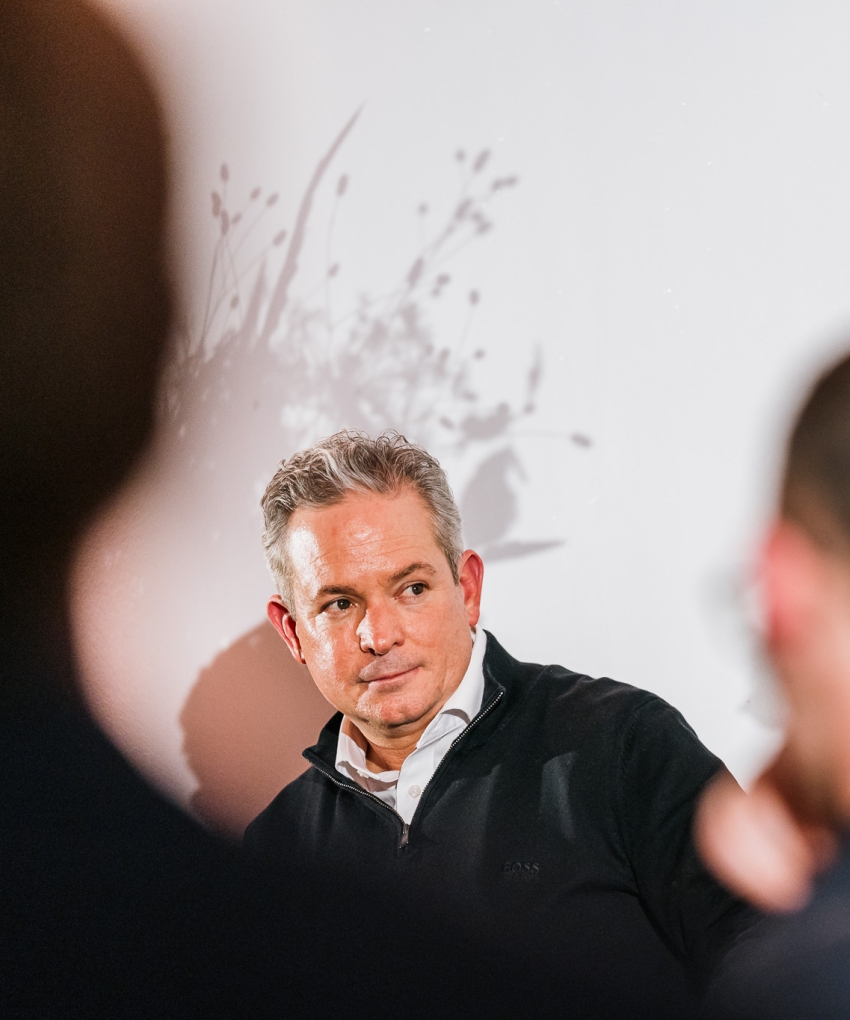Darren Roos (IFS): "Every challenge is an opportunity if you put the right lens and focus on it”
Darren Roos (IFS): "Every challenge is an opportunity if you put the right lens and focus on it”
Building and scaling a business at pace - this is what gets Darren Roos excited. As the Executive Chairman and former CEO of IFS, Darren has a track record in delivering. The result? The next generation of cloud-based enterprise software and spectacularly growing revenue and profit figures. He shared his success recipe during the CEO Summit of Fortino Capital in Brussels with the C-levels of B2B SaaS scale-ups from the Fortino community.
The growth and profit figures of IFS, the company headquartered in London, which Darren Roos has been leading since 2018, are impressive. In six years, IFS has more than tripled its software revenue, underpinned by recurring revenue growing at 37% on average each year. The EBITDA of the assets and service management vendor amounts to a whopping 30%.
Your roots are in South Africa. How does this make you unique?
Darren Roos: "My parents were change agents throughout my childhood. They took on and turned around holiday resorts that weren't doing well. They would refurbish them and make them profitable. Once the task was complete, our whole family would travel to another resort. That's how I attended 12 schools during my childhood. I grew up with change, constantly adapting to new environments, homes, schools, and friends. This made me very comfortable with change."
Why are both you and IFS experiencing such strong growth?
Roos: "In our market, there are major corporates at play. So why do we still win deals? There is an analogy that I believe in - the fast fish always eats the big fish. We chose true SaaS software earlier than our competitors and remained focused in our strategic direction, giving us the ‘right to win’ against the competition."
What advice do you share with CEOs of SaaS start-ups and scale-ups?
Roos: "Firstly, I believe that you can solve any problem if you see it as an opportunity and give it the right amount of focus ‘Revenue for any business is key’. To generate revenue, you have to sell. Since this wasn't happening enough at IFS, I focused on sales & marketing! I diverted the necessary budget from other parts of the business.
Secondly, you need to search for the ‘right to win.' This means having the people, services, and solutions needed to claim a top 5 position. If you don't have these, look for another market or a unique solution to differentiate yourself. When I started at IFS, I couldn't find the 'right to win.' Our ERP system and assets and field management solution were okay but not unique. This placed us in the most dangerous spot: where there are many competitors without differentiation. So, IFS had to create something nobody else had: we became an ERP player focusing on the combination of service and assets."
In your book 'Moment of Service,' you emphasize one crucial moment in customer relationships. What moment is that?
Roos: "Every company has those moments where it's judged, where it either delights or disappoints customers. We call this the 'moment of service.' For instance, I bought a new MacBook on Amazon. The fast delivery the next day was Amazon's moment of service. Unboxing and setting up the MacBook was Apple's moment of service. In our service economy, this moment is crucial. It determines whether customers return or leave."
How do you achieve a fantastic 'moment of service'?
Roos: "It's one moment, but you have to finely tune your entire organization to create that moment. For example, you need to ensure the right service engineer arrives at the customer with the right part at the right time. Aligning all processes to deliver at that moment is complex. It requires precise stock management, the ability to predict imminent maintenance, and so on. Every part of your organization must be optimized and must execute perfectly."

You need the right talents for such a well-oiled machine. What is your recruitment strategy?
Roos: "Remove emotion from recruiting and HR decisions. People often hire those they like. Conversely, we have a highly effective, concise interview process. We only look at people who have already done the job and are loyal. Someone who changes jobs every two years isn’t what we seek.
We subject these candidates to a DISC profile assessment. Before any interview takes place, our recruiters have a CV and DISC report. Based on this, they conduct a maximum of three interviews. Because we clarify their role very well and know exactly how it should be done, evaluation is also easy. Those who don't perform well in their job, we let go."
Finally, you also integrate AI into the software. Based on what criteria do you decide what to do with AI?
Roos: "AI is something we identified early and have integrated into our product, and we are already seeing our customers take advantage of in. We don't just integrate AI because our competitors do it. Instead, we determine what to do with AI based on three dimensions:
- Does AI add something relevant and desired by our customers?
- Does AI make us internally more efficient in presales, development, sales, HR...?
- How does AI help us to be distinctive?"